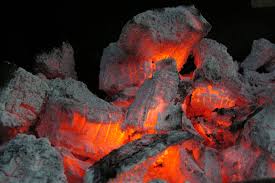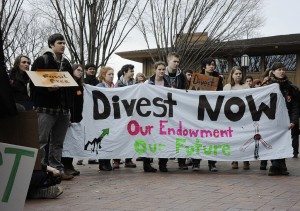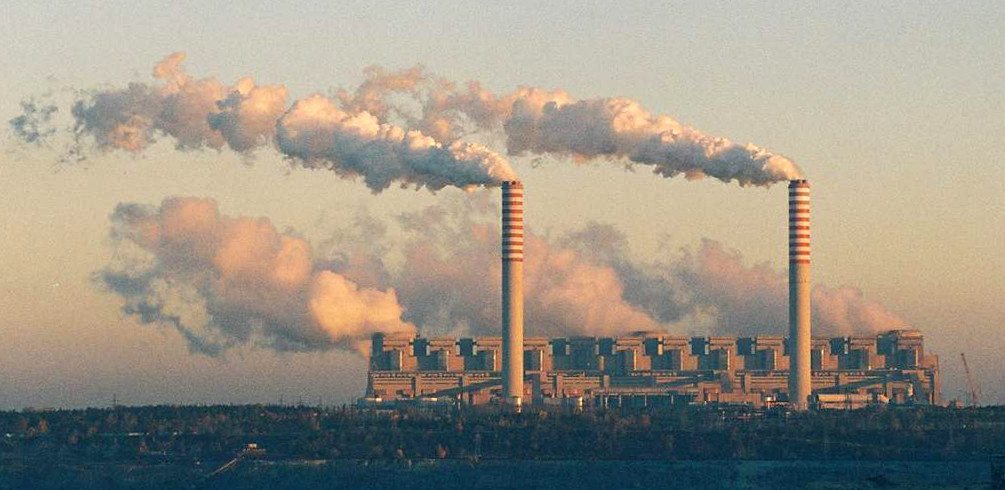Keep it in the ground
[dropcap]T[/dropcap]he idea of leaving coal, oil and gas in the ground never occurred to me in my early years. I first encountered the idea in a fringe radical magazine in the UK around 2009. The article reported on the Ecuadorian government’s offer to forgo their Amazonian oil reserves in return for recuperating a fraction of the total value of the assets from the international community. The concept of voluntarily abandoning vast deposits of carbon seemed for years as barmy as burying stacks of cash in a waste dump. Now I read about the idea in the Economist, the mouthpiece for the English business class.
Either we dig the stuff up, burn it, and wreck civilisation – or we keep it in he ground
Indeed, George Marshall, a prominent writer on the politics of climate change, found that over 23 years of international climate negotiations there wasn’t one proposal or debate on keeping fossil fuel reserves in the ground. This is despite it being the most obvious policy prescription imaginable: if we’re to avoid two degrees of warming, the point beyond which the continuation of civilisation begins to look shaky, then the vast majority of the oil, coal and gas we’ve found thus far must remain undisturbed. That’s it. Unavoidable. Either we dig this stuff up, burn it, and wreck civilisation – or we keep it the ground, and redesign our energy system and economy. That task is, as the great climate writer and activist Bill McKibben has said, both “brutally hard and painfully simple”.
 The change in the discourse from attempting to tackle the demand end of climate change – telling the average person to drive less, and turn the little light on their TV off – to focusing on the source of extraction – the fossil fuel industry – has been due in large part to the hard work of grassroots climate activists worldwide. Across the world we’re seeing blockades of new fossil fuel infrastructure, campus campaigns to get universities to move their money out of fossil fuel companies, and indigenous challenges to new mining and extraction projects. Increasingly radical tactics are being utilised, quite appropriately given the velocity with which we’re hurtling towards the precipice.
The change in the discourse from attempting to tackle the demand end of climate change – telling the average person to drive less, and turn the little light on their TV off – to focusing on the source of extraction – the fossil fuel industry – has been due in large part to the hard work of grassroots climate activists worldwide. Across the world we’re seeing blockades of new fossil fuel infrastructure, campus campaigns to get universities to move their money out of fossil fuel companies, and indigenous challenges to new mining and extraction projects. Increasingly radical tactics are being utilised, quite appropriately given the velocity with which we’re hurtling towards the precipice.
Naomi Klein, best known for writing the “bible” of the anti-globalisation movement, No Logo
Towering over the movement in the West and giving it intellectual foundation and inspiration is a new generation of climate writers and leaders. Late to the game, but now a star player, is Naomi Klein, best known for writing the “bible” of the anti-globalisation movement, No Logo. Now, with This Changes Everything: Capitalism vs. the Climate, she masterfully examines the scale of the problem, connecting it to our global economic system and the power of extractive industries, and details the networks of resistance developing worldwide. Interwoven with the narrative is an understanding of the industrial ideology of utter disconnect between man and nature, and a call for a new conception of our relationship with Earth. Threaded into the story, she notes the gendered nature of the metaphors utilised by the architects of the global industrial extractive project, and draws on indigenous forms of knowledge about sustainable land management.
Interwoven with the narrative is an understanding of the industrial ideology of utter disconnect between man and nature
The perhaps overly-long 500 page mammoth, as well referenced as many academic papers, is split into three parts. The first deals with the causes of the problem itself. Refreshingly, she doesn’t aim all her vitriol at an all-malevolent ‘neo-liberalism’; she traces the issue back far deeper, to the development of capitalism in the early 1800s, inherently bound up with an energy system dependent on fossil fuel extraction. Often the Left avoids dealing with the word ‘capitalism’, terrified of association with allegedly outmoded forms of socialist thought – Klein proudly sports it on the by-line of the title.
 One of her most insightful thoughts during this section is the notion that “the Right is right”; that the conservative bloc have a far more comprehensive understanding of the consequences of climate science than their opponents. For the first time in history, progressive forces have the massive weight of a scientific consensus on their side. As the wonderful historian of science, Naomi Oreskes, has said, “if you take climate science seriously it means we need to do something. We need to do something that changes the way we operate.” And luckily for the left, it’s the ideology of the reactionaries that has caused the problem, and we have far more scope for shaping the solutions than they do. Running scared, many on the Right realise that if they take the science seriously, their bankrupt prescriptions for society will be discredited. Hence, they react with complete denial of the science. Australian Prime Minister Tony Abbott declares coal “good for humanity”, and conservative groups funnel $1 billion into climate denial propaganda every year. Yet, the Left seems to be finally comprehending the astonishing opportunity facing them. Klein has seen it, and issues a call for a global, intersectional, radical movement to link a plethora of issues, united under a climate banner.
One of her most insightful thoughts during this section is the notion that “the Right is right”; that the conservative bloc have a far more comprehensive understanding of the consequences of climate science than their opponents. For the first time in history, progressive forces have the massive weight of a scientific consensus on their side. As the wonderful historian of science, Naomi Oreskes, has said, “if you take climate science seriously it means we need to do something. We need to do something that changes the way we operate.” And luckily for the left, it’s the ideology of the reactionaries that has caused the problem, and we have far more scope for shaping the solutions than they do. Running scared, many on the Right realise that if they take the science seriously, their bankrupt prescriptions for society will be discredited. Hence, they react with complete denial of the science. Australian Prime Minister Tony Abbott declares coal “good for humanity”, and conservative groups funnel $1 billion into climate denial propaganda every year. Yet, the Left seems to be finally comprehending the astonishing opportunity facing them. Klein has seen it, and issues a call for a global, intersectional, radical movement to link a plethora of issues, united under a climate banner.
“If you take climate science seriously it means we need to do something. We need to do something that changes the way we operate” – Naomi Oreskes
The second section turns fire on supposed allies: ‘Big Green’, or those tame climate organisations that have become cheerleaders for natural gas, or have even begun extracting it on their own preserves (as The Nature Conservancy has done on its Texan land holdings). Soft ‘market’ solutions like cap and trade, grand new technologies such as carbon capture and storage, and so-called green billionaires (Richard Branson is the symbolic punch bag) are all slowly dismantled over 100 pages. Sadly, nuclear power gets little more than a cursory mention, and is largely dismissed on ideological grounds (“no technology does more to confirm the notion that man has tamed nature than the ability to split the atom”). Her commitment to a community-led, decentralised energy system is commendable – and fundamentally important, once one grasps the connection between concentrated fossil fuel reserves and the concentration of power in the hands of those who control those reserves – but her opposition to grand technologies can veer from healthy scepticism to hyperbole. She almost describes proposals for geoengineering as “genocidal”, for example. Fortunately, her views are almost always extensively backed up by peer-reviewed research and fit well into her overarching framework.
Klein has provided a detailed, inspiring and intellectually coherent vision for a worldwide progressive movement derived from hard-nosed climate science.
The third and final part of the book switches focus to those on the frontlines of climate change, and the global network of activists fighting the fossil fuel industry. One chapter deals with the growing phenomenon of ‘Blockadia’: the practice of activists physically blocking fossil fuel infrastructure. Blockadia frontlines exist here in Australia, where activists like the now-famous Dayne Pratzky, a.k.a. ‘Frackman’, have been leading the way in blockading the expansion of coal-seam gas in rural Queensland. Australia’s ‘Lock the Gate’ campaign is a fine example of the political alliance building Klein applauds; traditionally conservative rural farmers have been linking arms with Aboriginal elders and latte-sipping urbanites to hold the line in the latest frontier of what Klein describes as “the era of extreme energy”.
 Klein has provided a detailed, inspiring and intellectually coherent vision for a worldwide progressive movement derived from hard-nosed climate science. Her arguments chime well with, and deepen, those already being developed across the movement, from the Fossil Free divestment campaign on university campuses, to First Peoples tackling the industry head on. Commenting on the reception of her book by the mainstream at the Progress 2015 conference in Melbourne, Klein lamented the lack of rebuttal by those upholding the traditional narrative of relentless extraction. Knowing the strength of her arguments, they seem to be choosing to stonewall instead – a predictable response from those who must realise that their intellectual project is becoming enveloped under the rising tides.
Klein has provided a detailed, inspiring and intellectually coherent vision for a worldwide progressive movement derived from hard-nosed climate science. Her arguments chime well with, and deepen, those already being developed across the movement, from the Fossil Free divestment campaign on university campuses, to First Peoples tackling the industry head on. Commenting on the reception of her book by the mainstream at the Progress 2015 conference in Melbourne, Klein lamented the lack of rebuttal by those upholding the traditional narrative of relentless extraction. Knowing the strength of her arguments, they seem to be choosing to stonewall instead – a predictable response from those who must realise that their intellectual project is becoming enveloped under the rising tides.
Well, Naomi, we’re listening.
Well, Naomi, we’re listening. Cynthia Orr, a 67 year old mental health councilor from Seattle, described to the New York Times how she underwent a transformation after reading the book. Subsequently, she was sitting in a kayak off the coast of Seattle confronting Shell’s new terminal for Arctic oil exploration. Let’s hope others who read the work are similarly inspired.
Image Credits: Header (simple.wikipedia.org), Image 1 (commons.wikimedia.org), Image 2 (simple.wikipedia.org), Image 3 (commons.wikimedia.org)

Comments